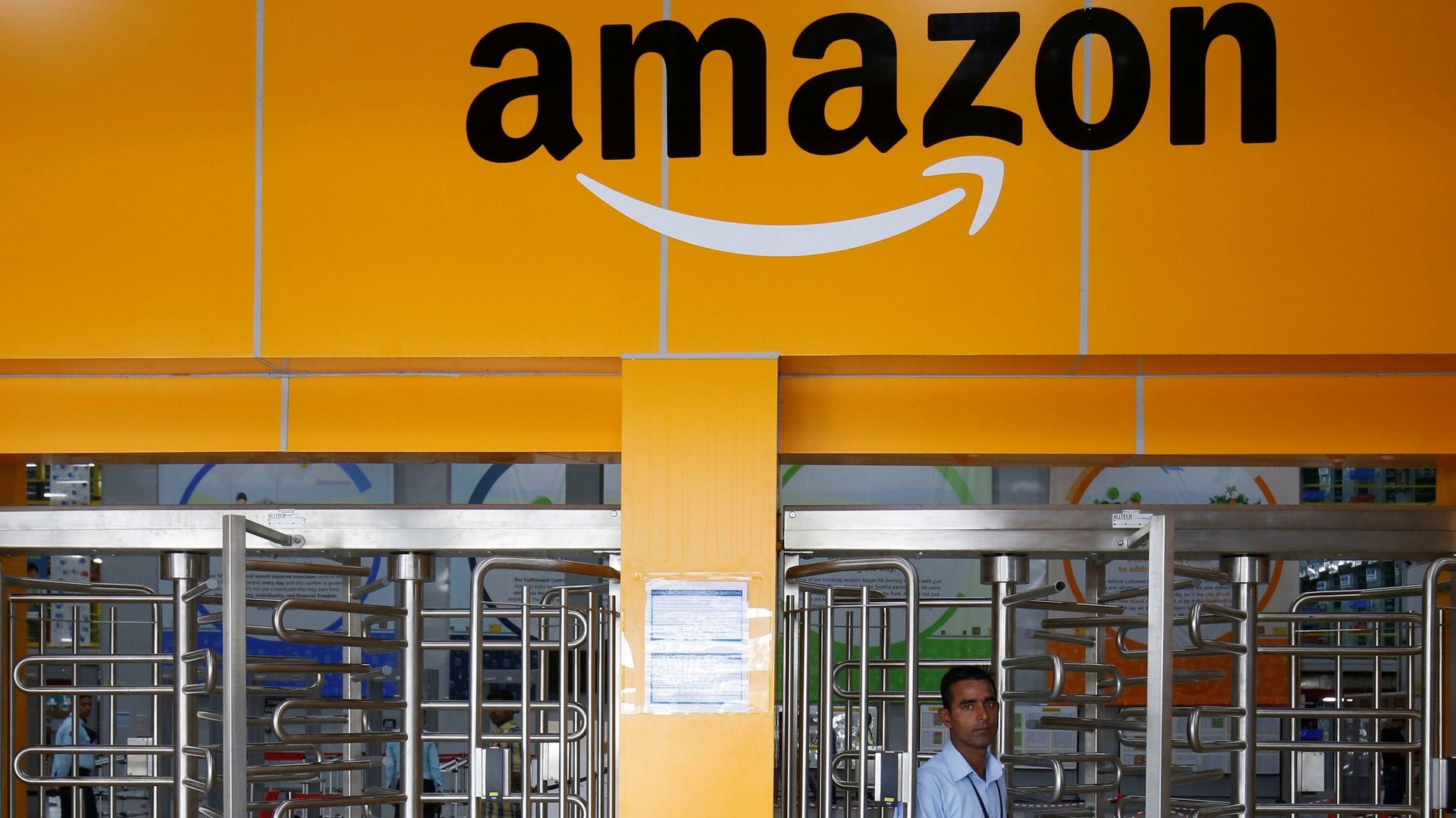A day before India’s new FDI rules kick in, Amazon and Flipkart pray for a miracle
Less then 24 hours before India’s new e-commerce policy comes into effect, the country’s largest online retailers are still hoping for a deadline extension as they just aren’t ready.


Less then 24 hours before India’s new e-commerce policy comes into effect, the country’s largest online retailers are still hoping for a deadline extension as they just aren’t ready.
“With over 400,000 sellers and hundreds of thousands of transactions happening daily on the Amazon India Marketplace, we need adequate time to understand the details of the policy,” Amazon India said in a statement to Quartz. Walmart, which now owns India’s largest homegrown e-commerce venture, Flipkart, has also sought an extension to the Feb. 01 deadline.
On Dec. 26, the Narendra Modi government abruptly announced several restrictive changes (pdf) to its foreign direct investment (FDI) policy for the e-commerce industry. The asks were big: Online marketplaces cannot enter into exclusive deals for selling products on their platforms and not more than a quarter of the inventory on an e-commerce platform can come from a single vendor. The government has also restricted marketplaces from influencing prices in a bid to curb deep discounting.
Analysts have said the new norms could take a massive toll on the earnings of Amazon and Flipkart. CRISIL Ratings estimates both the companies to lose up to 40% in revenues each—between Rs35,000 crore ($5 billion) and Rs40,000 crore—by 2020 due to the tightening of FDI norms.
Push and pull
While the government has not hinted at any extension, legal experts believe Amazon and Flipkart’s request is fair.
The policy “envisages substantial internal restructuring insofar as the major e-commerce entities are concerned, so as to ensure that the sellers are disconnected from the e-commerce entity or its group company, (which) clearly indicates that they’re expected to spend substantial time in restructuring their operations,” said Atul Pandey, partner at Mumbai-based law firm Khaitan & Co.
At this point, even the US government is perturbed by India’s unrelenting stance, concerned that the move is “bad for business.”
However, several mid-sized e-commerce companies in India say they are in compliance with the new norms and have vehemently opposed any extension to the Feb. 01 deadline.
Some such companies are even threatening a nationwide campaign if a grace period is granted. “We have warned that ‘violators’ may use their clout to seek extension or relaxations in the policy, which if allowed, will perpetuate the damages already done to micro, small, and medium enterprises,” Sanjay Sethi, co-founder and CEO of Gurugram-based Shopclues, told Quartz.
Sethi and others believe the norms aren’t exactly new since the government had indicated similar guidelines in its e-commerce policy first floated in 2016.
However, Ankur Nigam, a partner for transaction advisory services at EY, believes these mid-sized e-commerce players won’t come out completely unscathed from these policy changes either. Everyone will “feel the pinch as the new norms don’t talk about foreign holding or domestic holding,” said Nigam. “They talk about equity participation in the seller entity and the ability to influence price.”
In addition, multiple Indian brick-and-mortar vendors have set up shop on these online portals. “Surely, most of them, if not all, would have moved out from selling on these platforms if it wasn’t showing economic viability for them,” said Nigam.
The ripple effect
If the government does not give the firms more time, “companies will not be able to adhere to the new norms and they will have to choose between incurring losses and being non-compliant,” said Mayur Saraswat, head of digital at IT and telecom at payroll firm Teamlease Services. “This will also disrupt job creation; at least it will slow the pace of new jobs being created.”
Bain Capital credits e-commerce behemoths with having created 300,000 jobs in India. In addition, they’ve had an incredible network effect. Industries such as advertising and logistics are riding high on the online shopping wave.
Additionally, many of India’s e-commerce firms are backed by international investing giants like Japan’s Softbank, the US’s Tiger Global, and South Africa’s Naspers. Such a sudden shift in policy could put off investors. “Investments are also dependent on some element of predictability,” said Saraswat, adding that relaxing the timelines “will send a signal for an investor-friendly environment.”
Moreover, some of the biggest losers in the battle may eventually be Indian consumers, Vindu Goel of the New York Times wrote:
Gone will be iPhones and cheap jumbo packs of Pampers diapers. Fewer varieties of Maybelline cosmetics will be available, and Amazon’s own Echo smart speakers will vanish entirely.
In all, more than 400,000 items that account for nearly a third of Amazon’s estimated $6 billion in annual sales in India will probably disappear at least temporarily from the local version of the company’s service, as Amazon tries to comply with new e-commerce rules imposed by the Indian government.